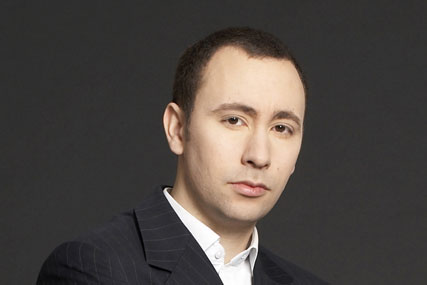Being 'the man from the Pru' was an uncomfortable position to occupy last week. Tidjane Thiam, the recently installed boss of Britain's biggest insurance provider, watched last Monday and Tuesday as his company's share price slumped.***
This followed a £13bn rights issue to allow Prudential to mount a £23bn takeover bid for Asian insurer AIA. It may have been one of the most ambitious moves ever made by the chief executive of a UK public company, but investors were concerned about its dilutive impact on the Pru's share price.
By Wednesday, the fall had been arrested but, by then, the damage had been done. For many in the City, there was serious doubt about whether the takeover would go ahead.
To rub salt into Thiam's wounds, up popped Andrew Moss, the chief executive of Aviva, the Pru's main British rival, talking down the growth prospects for the insurance industry in Asia and declaring that Europe would be its main profit growth driver in future years.
So which of them is right, and why does it matter to marketers? There is, of course, history between these two giants of the sector. A little more than four years ago, Aviva made an approach to acquire the Pru. At the time, Moss was Aviva's finance director, and the takeover bid quickly fell flat.
Since then, the fortunes of the two companies have diverged. Under the Pru's former chief executive, Mark Tucker, the City became increasingly enthusiastic about the company's focus on its fast-growing Asia operations, while with Moss in charge, analysts have questioned where Aviva's genuine long-term growth might come from.
Still, Moss' barbed comments about the comparative regulatory risk in emerging markets do have some merit. Integrating its Asian operations with those of AIA is also a gamble for the Pru. If the AIA deal does go through, it will raise questions about whether it should continue to describe itself as a UK company. At least 80% of its new business will be generated by customers in Asia, and the number of policies from Pru-owned brands in China or India will dwarf that held by UK customers.
Does that matter? Well, only if as a customer you care about the provenance of your insurance company, which few people do.
Still, the fact that Thiam has seemed vague about the Pru's long-term commitment to the UK leads to the obvious conclusion that its ties to this country are now looser than at any point in its history. That would be further reinforced if the Pru is ultimately persuaded to sell off part or all of its UK insurance operations, as looks increasingly likely.
For one thing, there are plenty of predators around who would like to get their teeth into the business. Resolution, the acquisition vehicle headed by the tycoon Clive Cowdery, has made several approaches to Prudential in the past about buying its UK life operations (although there are no current talks taking place).
Many insurance analysts believe that, while the Pru's UK business throws off valuable capital and cash, the company's future marketing investment might be better spent chasing business in faster-growing emerging markets (hence Thiam's £23bn bet on AIA).
That is a point with broader significance than for Prudential or the insurance industry. UK companies targeting the global consumer (Diageo, Unilever and HSBC are three obvious examples) deserve the backing of their investors (unless their strategic moves are overpriced, illogical or both).
It is the only way to ensure that the UK punches its weight on the global economic stage and in that respect it must be good for 'Brand Britain' as well.
- Mark Kleinman is City editor at Sky News and a columnist for The Times
30 SECONDS ON ... PRUDENTIAL
- Prudential plc is a financial-services group based in London. Founded in Hatton Garden in 1848 as the Prudential Mutual Assurance Investment and Loan Association, it provided insurance and loans to the middle classes. In 1854 it expanded to offer industrial insurance to the working classes via door-to-door agents.
- The company grew during the second half of the 19th century, adding new types of policy, such as Infantile Insurance, and extending its geographical reach. In 1912 it became involved in Lloyd George's social welfare scheme, providing sickness and unemployment benefits, following the passage of National Insurance Act. It moved into general insurance for the first time in 1919.
- Prudential opened its first overseas life agency in India in 1923.
- 'The Man from the Pru' first appeared in ads in 1949. His successor, the Prudence logo, appeared in 1986; it includes the mirror, arrow and serpent symbols that appeared in the company's 1848 seal.


